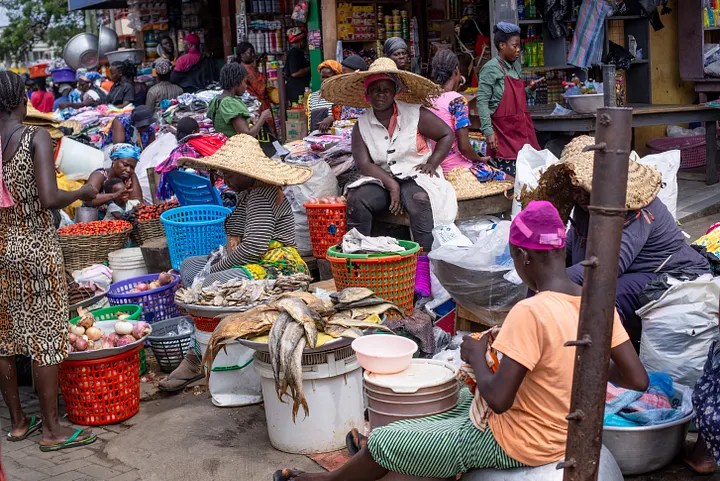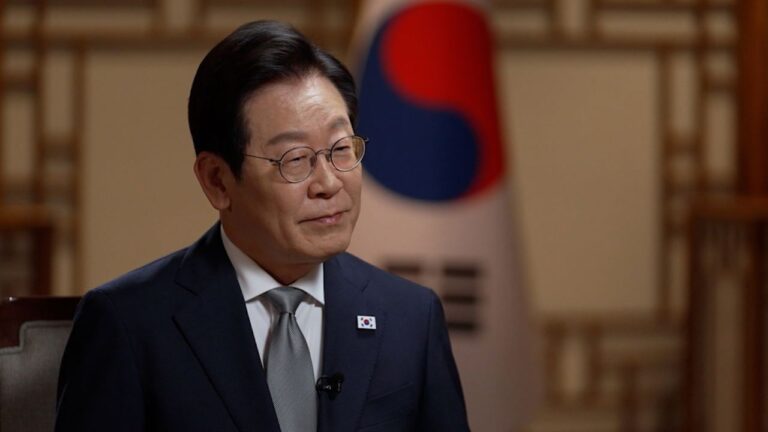
– Advertisement –
AI can also benefit the millions of people employed in the informal economy in Africa
By Katim Seringe Touray, PhD
Artificial Intelligence (AI) has emerged in the past few years as leading technology with enormous potential to contribute to improving lives, despite the attendant challenges and risks. In this, Africa is no exception and expectations are very high that AI can have significant impacts on Africa’s development. AI is thus expected to foster industrialisation in Africa, increase access to jobs, improve government services, as well as health and education, and increase resilience to climate change, and impact both the formal and informal sectors of the economy in Africa.
– Advertisement –
The informal economy has been defined by the International Labour Organisation (ILO) of the UN as referring to all economic activities (by economic units and workers) that are inadequately, or not supported by formal arrangements or provisions. Essentially, the informal sector consists of workers, activities and firms which operate outside regulatory and legal frameworks, and thus avoid taxes and regulation, without benefiting from state services and protection.
The informal economy is estimated to affect the livelihoods of over two billion people globally, especially in the African, Caribbean, and Pacific (ACP) countries, where it employs 80% of workers. The sector is characterised by self-employed entrepreneurs, part-time or seasonal workers, and unpaid family workers who have low incomes and productivity. Participants in this sector are, even in the best of times, vulnerable, face high occupational risks, and lack social benefits (for example, pensions, and health care).
The informal sector is strong in many ACP countries because of its low barriers to entry (including limited capital and education requirements). It is also a major source of employment and income and provider of goods and services to poor households. The low barriers to entry means that significant proportions (48.6% for sub-Saharan Africa [SSA], and 61.4% in West Africa) of people in the informal economy have no formal education in 2019.
– Advertisement –
The importance of the informal economy in Africa is manifested in various ways, including the fact that it generates an estimated 40% of the GDP of sub-Saharan Africa (SSA), and as much as 60% of the GDP of some West African countries. The informal economy also accounted for 85% of employment (383.4 million) in SSA in 2022, and in 2015 employed 80% of youths on the continent. In addition, the informal sector is a very important source of employment for women in SSA, accounting for 74% of non-agricultural women’s employment, compared to 61% for men.
Beyond the numbers, the informal economy is important in Africa because it provides livelihoods where opportunities in the formal sector are limited. Furthermore, the sector includes a diverse activities ranging from street vending of food and other items, to providing transportation and repair services, thus contributing to the economic survival and food security of millions of families in Africa.
Fortunately, AI has a lot of potential and has been demonstrated to help the actors in the informal economy in Africa. This huge potential can be seen from two perspectives: first in terms of using AI to help informal sector actors to be more successful in their endeavours, and secondly, to use AI to transition informal sector actors to the formal sector. Both approaches are useful, and can be implemented in tandem, depending on local circumstances and preferences.
AI has already proven to be of immense help to informal economy actors in various ways. Thus, AI helped increase financial inclusion of informal economy actors, and increased their access to credit. For example, the South African fintech company, Jumo, has used AI to develop a credit scoring system for unbanked mobile phone users (for example, small traders, street vendors, and motorbike taxi drivers) thereby enabling them to access nano loans in real time. In the same vein, Safaricom of Kenya is using AI for fraud detection and risk management on its M-Pesa mobile money platform to prevent fraud while at the same time keeping transaction costs low for their clients in the informal economy.
AI has also been used to support subsistence farmers in rural areas in Africa. For example, Hello Tractor uses AI in Kenya, Nigeria and other countries to match smallholder farmers with tractor owners, while reducing costs and optimizing equipment utilisation. In the same vein, Apollo Agriculture in Kenya uses AI to analyse satellite imagery, as well as weather and soil data to provide smallholder farmers with customised farming advice, insurance, and credit. The repayment rate of over 90% proves that AI can accurately assess credit risk in informal agricultural economies where traditional credit scoring fails or do not exist.
Another area in which AI is helping the informal economy in Africa is in creating and strengthening market linkages and e-commerce opportunities. Thus, Wasoko (formerly Sokowatch) uses AI in Kenya and Tanzania to connect retailers and suppliers in the informal economy, and help them predict inventory needs, and optimise delivery routes. Similarly, Twiga Foods uses AI to connect farmers and produce vendors in the informal economy, and predicts demand to dynamically optimise prices and arrange logistics.
The relatively high proportion of informal economy actors in Africa with little or no education, presents special challenges in the use of AI to spur development in Africa. For this reason, various initiatives have been taken to cater to the needs of illiterates in the informal economy in Africa. For example, voice-based AI tools have been used to enable illiterates to access platforms using their local languages, given that 86% of women in 52 African countries did not have basic AI proficiency, and 60% of them have not had any digital skills training in 2024. Similarly, Wasoko, which uses AI to connect informal retailers and suppliers in Kenya and Tanzania, uses a voice-based interface in local languages.
AI can also provide informal economy actors with call centre solutions with chatbots (which provide text-based responses) or voicebots which simulate conservations with customers. Examples of such automated customer service and communications chatbots in Africa include Omnibot and Chatbots Africa, both of which use WhatsApp to support informal businesses with AI-based call-center and e-commerce solutions.
AI can also help informal economy actors in Africa transition to the formal economy, leading to huge fiscal and economic benefits. For example, formalizing enterprises in Africa has been estimated to increase the tax base by 15–30%, and generate an additional US$125.3 billion in revenue annually. Formalising informal economy actors is also important because it conforms to the ILO labor guidelines, and can help attain Sustainable Development Goal (SDG) 8 of the UN. Thus, many African countries have used various strategies to formalise such as increasing productivity, improving regulatory environment, improving enforcement, and providing incentives to formalise informal economy actors.
AI can help formalise informal economy actors by helping them transform their business operations, and simplifying business registration and tax compliance. AI can also help informal economy actors transform their customer interactions, facilitate and improve logistics for delivery services by providing them route analysis tools, and help them integrate into digital ecosystems. In addition, AI can help simplify business registration and tax compliance for informal economy actors, thereby making it easier for them to transition to the formal economy.
Despite the huge benefits (potential and real) of AI in the informal economy in Africa, progress is hampered by some important challenges. For example, 60% of women in Africa have not had any digital skills training, and 50.2% of them do not have, or have poor internet access (compared to 84.9% for men). In addition, AI use in Africa is hampered by the paucity of local content on the internet, with only 0.02% of total internet content being in African languages. This certainly makes it particularly challenging for informal economy actors in Africa to benefit from AI.
Despite these challenges, AI has an enormous potential to contribute to the informal economy in Africa, especially with regards to improving business systems, increasing incomes, and helping actors in this sector transition to the formal economy. Given the significant contribution AI is making to the informal economy in Africa, it is imperative that efforts be redoubled to overcome the barriers to maximizing its benefits in Africa.
Katim S Touray, PhD, is a soil scientist and international development consultant. Read more of his articles at https://www.linkedin.com/in/kstouray More articles:
https://kstouray.medium.com












